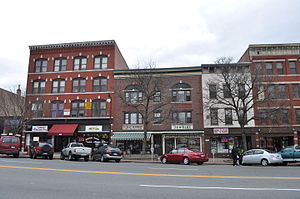[vc_row type=”standard_section” bg_image=”” bg_repeat=”stretch” parallax_bg=”” stellar_class=”default” bg_color=”” section_arrow=”” video_bg=”” enable_video_color_overlay=”” video_overlay_color=”” video_webm=”” video_mp4=”” video_ogv=”” video_image=”” text_color=”dark” custom_text_color=”” text_align=”left” top_padding=”10″ bottom_padding=”” class=”” row_id=””][vc_column animation=”none” bg_color=”” bg_image=”” column_padding=”no-padding” column_custompadding=”0px 0px 0px 0px” column_center=”” text_color=”dark” custom_text_color=”” text_align=”left” width=”1/1″][vc_column_text]
Middletown, CT
 Middletown is a city located in Middlesex County, Connecticut, along the Connecticut River, in the central part of the state, 16 miles (26 km) south of Hartford. In 1650, it was incorporated as a town under its original Indian name,Mattabeseck. It received its present name in 1653. Middletown was included within Hartford County upon its creation on May 10, 1666. In 1784, the central settlement was incorporated as a city distinct from the town. Both were included within newly formed Middlesex County in May of 1785. In 1923, the City of Middletown was consolidated with the Town, making the city limits of the city quite extensive.
Middletown is a city located in Middlesex County, Connecticut, along the Connecticut River, in the central part of the state, 16 miles (26 km) south of Hartford. In 1650, it was incorporated as a town under its original Indian name,Mattabeseck. It received its present name in 1653. Middletown was included within Hartford County upon its creation on May 10, 1666. In 1784, the central settlement was incorporated as a city distinct from the town. Both were included within newly formed Middlesex County in May of 1785. In 1923, the City of Middletown was consolidated with the Town, making the city limits of the city quite extensive.
Originally a busy sailing port and then an industrial center, it is now largely residential with its downtown serving as a popular retail, dining, and entertainment district proximal to Wesleyan University. Middletown was the county seat of Middlesex County from its creation in 1785 until the elimination of county government in 1960. As of the2010 census, the city had a total population of 47,648. Middletown, Connecticut is considered the southernmost city in the Hartford-Springfield Knowledge Corridor Metropolitan Region, which features a combined metro population of 1.9 million.[/vc_column_text][/vc_column][/vc_row][vc_row type=”standard_section” bg_image=”” bg_repeat=”stretch” parallax_bg=”” stellar_class=”default” bg_color=”” section_arrow=”” video_bg=”” enable_video_color_overlay=”” video_overlay_color=”” video_webm=”” video_mp4=”” video_ogv=”” video_image=”” text_color=”dark” custom_text_color=”” text_align=”left” top_padding=”10″ bottom_padding=”25″ class=”” row_id=””][vc_column animation=”none” bg_color=”” bg_image=”” column_padding=”no-padding” column_custompadding=”0px 0px 0px 0px” column_center=”” text_color=”dark” custom_text_color=”” text_align=”left” width=”1/1″][vc_column_text]
[/vc_column_text][/vc_column][/vc_row][vc_row type=”standard_section” bg_image=”” bg_repeat=”stretch” parallax_bg=”” stellar_class=”default” bg_color=”” section_arrow=”” video_bg=”” enable_video_color_overlay=”” video_overlay_color=”” video_webm=”” video_mp4=”” video_ogv=”” video_image=”” text_color=”dark” custom_text_color=”” text_align=”left” top_padding=”” bottom_padding=”” class=”” row_id=””][vc_column animation=”none” bg_color=”” bg_image=”” column_padding=”no-padding” column_custompadding=”0px 0px 0px 0px” column_center=”” text_color=”dark” custom_text_color=”” text_align=”left” width=”1/1″][vc_column_text]
Travel Tips
Traveling can increase your chances of getting sick. A long flight can increase your risk for deep vein thrombosis. Once you arrive, it takes time to adjust to the water, food, and air in another place. Water in developing countries can contain viruses, bacteria, and parasites that cause stomach upset and diarrhea. Be safe by using only bottled or purified water for drinking, making ice cubes, and brushing your teeth. If you use tap water, boil it or use iodine tablets. Food poisoning can also be a risk. Eat only food that is fully cooked and served hot. Avoid unwashed or unpeeled raw fruits and vegetables.
If you are traveling out of the country, you might also need vaccinations or medicines to prevent specific illnesses. Which ones you need will depend on what part of the world you’re visiting, the time of year, your age, overall health status, and previous immunizations. See your doctor 4 to 6 weeks before your trip. Most vaccines take time to become effective.[/vc_column_text][/vc_column][/vc_row][vc_row type=”standard_section” bg_image=”” bg_repeat=”stretch” parallax_bg=”” stellar_class=”default” bg_color=”” section_arrow=”” video_bg=”” enable_video_color_overlay=”” video_overlay_color=”” video_webm=”” video_mp4=”” video_ogv=”” video_image=”” text_color=”dark” custom_text_color=”” text_align=”left” top_padding=”10″ bottom_padding=”20″ class=”” row_id=””][vc_column animation=”none” bg_color=”” bg_image=”” column_padding=”no-padding” column_custompadding=”0px 0px 0px 0px” column_center=”” text_color=”dark” custom_text_color=”” text_align=”left” width=”1/1″][vc_column_text]
[/vc_column_text][/vc_column][/vc_row]












